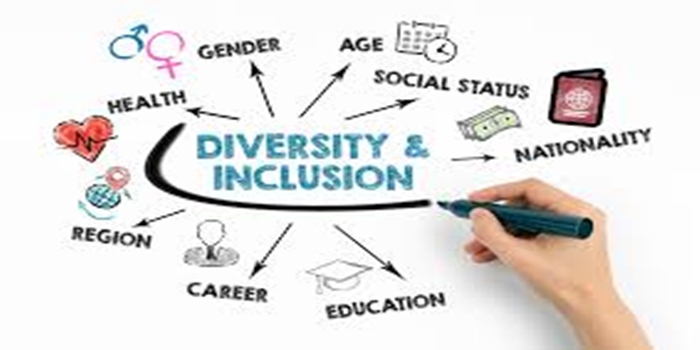In this article, we discussed the meaning of diversity and inclusivity, the examples, how to promote it, and also the benefits.
Definition
Diversity is the practice of including people from different backgrounds, while inclusivity is the practice of making people feel welcome and valued.
Diversity and inclusion (D&I) are strategies and policies that promote a workplace that values and respects people from different backgrounds. D&I can also be applied to other institutions, such as schools and the justice system.
The Examples of Diversity and Inclusivity include:
Inclusive language: Using language that acknowledges and values people’s individuality
Insensible unfairness: Identifying and addressing unconscious bias in the workplace
Inclusive hiring practices: Using fair recruitment processes to attract diverse talent and reduce bias
Inclusive training: Providing training to create an inclusive workplace
Employee engagement: Creating an environment where employees feel valued and accepted
Employee resource groups: Groups of employees who work together to promote diversity and inclusion
Diverse workforce: Hiring people from different backgrounds, including gender, sexual orientation, and religion
Multigenerational workforce: Addressing the challenges and opportunities of working with a multigenerational workforce.
To promote diversity and inclusivity, you can:
Create a welcoming environment: Encourage people to bring their whole selves to work, and respect their differences
Foster a culture of inclusion: Create a space where people feel safe to share their ideas and perspectives
Address discrimination and harassment: Take action to address discrimination and harassment promptly
Promote diversity in hiring and promotion: Ensure that hiring and promotion practices are inclusive
Provide training: Offer training programs on diversity and inclusion
Establish policies: Create clear policies that promote diversity and inclusion
Encourage awareness: Raise awareness of diversity and inclusion issues
Recognize holidays: Recognize cultural, religious, and awareness holidays
Encourage open dialogue: Facilitate open discussions and workshops on diversity and inclusion
Set an example: Lead by example and encourage diverse perspectives and ideas
Challenge stereotypes: Challenge stereotypes and be open to new ways of thinking
Diverse and inclusive workplaces can lead to:
Increased innovation and adaptability
Better business results
Higher productivity
Improved employee engagement and retention
More psychologically safe work environments
Diversity and inclusivity can have many benefits, including:
Better decision-making: Diverse perspectives can help avoid groupthink and lead to better decision-making
Improved problem solving: Diverse teams can solve problems faster and more effectively
Increased innovation: Different perspectives and experiences can lead to new ideas and solutions
Better understanding of customers: Diverse teams can better understand the needs of customers from different backgrounds
Increased employee engagement: Employees feel more connected and productive when they feel valued and included
Reduced turnover: Diverse and inclusive organizations have lower turnover rates
Improved reputation: Companies that prioritize diversity can attract top talent and improve their employer brand
Access to a larger talent pool: Expanding recruitment to include more diverse candidates can help find the best hires
Stronger business results: Diverse and inclusive organizations can have better financial results and profits
Increased creativity: Different perspectives and experiences can lead to new ideas and solutions
Improved employee morale: Employees feel more connected and productive when they feel valued and included.
Conclusion
Diversity and inclusivity mean understanding one another by surpassing simple tolerance to ensure people truly value their differences. This allows us both to embrace and also to celebrate the rich dimensions of diversity contained within each individual and place positive value on diversity in the community and in the workforce.


